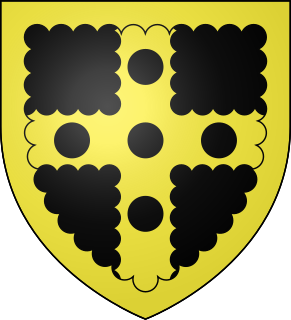A Quote by Allen Tate
A poem may be an instance of morality, of social conditions, of psychological history; it may instance all its qualities, but never one of them alone, nor any two or three; never less than all.
Related Quotes
A work of art rests its merits in traditional qualities. It may constitute a remarkable feat in craftsmanship; it may be a searching study of psychological states; it may be a nostalgic glance backward; it may be any one of an infinite number of concepts, none of which may have any possible bearing upon its degree of newness.
O Lord, may I never want to look good. O Jesus, may I always read it all: out loud and the very way it should be. May I never look at the other findings until I have come to my own true conclusions: May I care for the least of the young: and become aware of the one poem that each may have written; may I be aware of what each thing is, delighted with form, and wary of the false comparison; may I never use the word "brilliant."
When sin lets us alone we may let sin alone; but as sin is never less quiet than when it seems to be most quiet, and its waters are for the most part deep when they are still, so ought our contrivances against it to be vigorous at all times and in all conditions, even where there is least suspicion.
[My approach to the Bible, history does really matter.] Everything matters. But I have priorities. For instance, for me to know whether there were two Isaiahs or one is less important than the text itself. Of course I read the arguments for and against. But it's not my task in life to say there were two or three authors of Isaiah's book, or how many authors there were of Deuteronomy. This is not what I'm doing.
A poem, being an instance of language, hence essentially dialogue, may be a letter in a bottle thrown out to the sea with the-surely not always strong-hope that it may somehow wash up somewhere, perhaps on the shoreline of the heart. In this way, too, poems are en route: they are headed towards. Toward what? Toward something open, inhabitable, an approachable you, perhaps, an approachable reality. Such realities are, I think, at stake in a poem.
Even in a minute instance, it is best to look first to the main tendencies of Nature. A particular flower may not be dead in early winter, but the flowers are dying; a particular pebble may never be wetted with the tide, but the tide is coming in. To the scientific eye all human history is a series of collective movements, destructions or migrations, like the massacre of flies in winter or the return of birds in spring.
The human understanding is a revelation from its maker, which can never be disputed or doubted. There can be no scepticism, Pyrrhonism, or incredulity or infidelity here. No prophecies, no miracles are necessary to prove this celestical communication. This revelation has made it certain that two and one make three, and that one is not three nor can three be one. We can never be so certain of any prophecy, or the fulfilment of any prophecy, or of any miracle, or the design of any miracle, as we are from the revelation of nature, that is, nature's God, that two and two are equal to four.
Never may an act of possession be exercised upon a free being; the exclusive possession of a woman is no less unjust than the possession of slaves; all men are born free, all have equal rights: never should we lose sight of those principles; according to which never may there be granted to one sex the legitimate right to lay monopolizing hands upon the other, and never may one of the sexes, or classes, arbitrarily possess the other.
As editor of WikiLeaks, I am very proud of three things. Number one, we have never got it wrong in terms of what we say. A document is what it is. Number two, we have never revealed one of our sources ever. Number three, what are we proud of? We are proud that there is not a single instance of anyone coming into physical harm as a result of our publication.
I envy not in any moods The captive void of noble rage, The linnet born within the cage, That never knew the summer woods: I envy not the beast that takes His license in the field of time, Unfetter’d by the sense of crime, To whom a conscience never wakes; Nor, what may count itself as blest, The heart that never plighted troth But stagnates in the weeds of sloth; Nor any want-begotten rest. I hold it true, whate’er befall; I feel it, when I sorrow most; ‘Tis better to have loved and lost Than never to have loved at all.







































